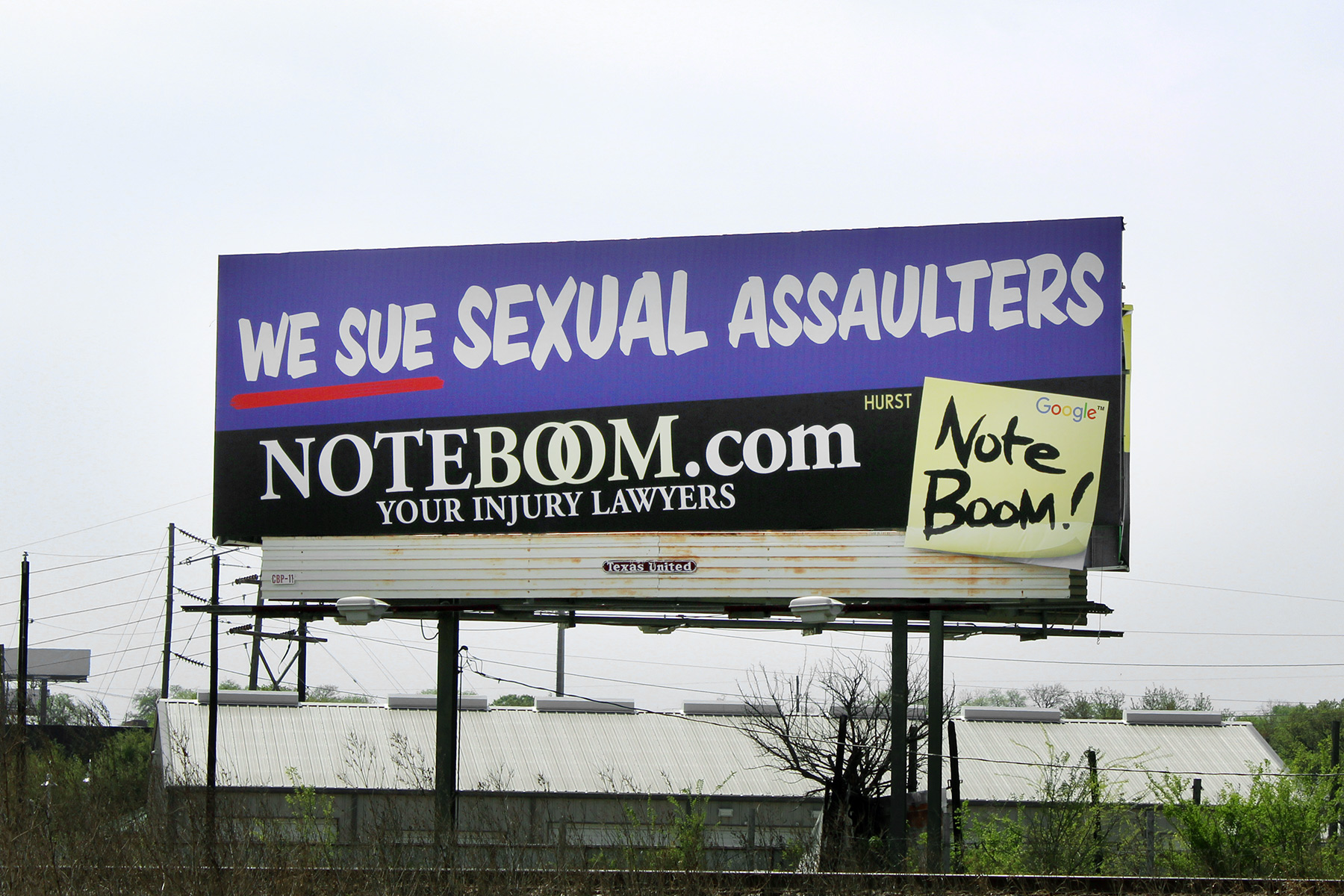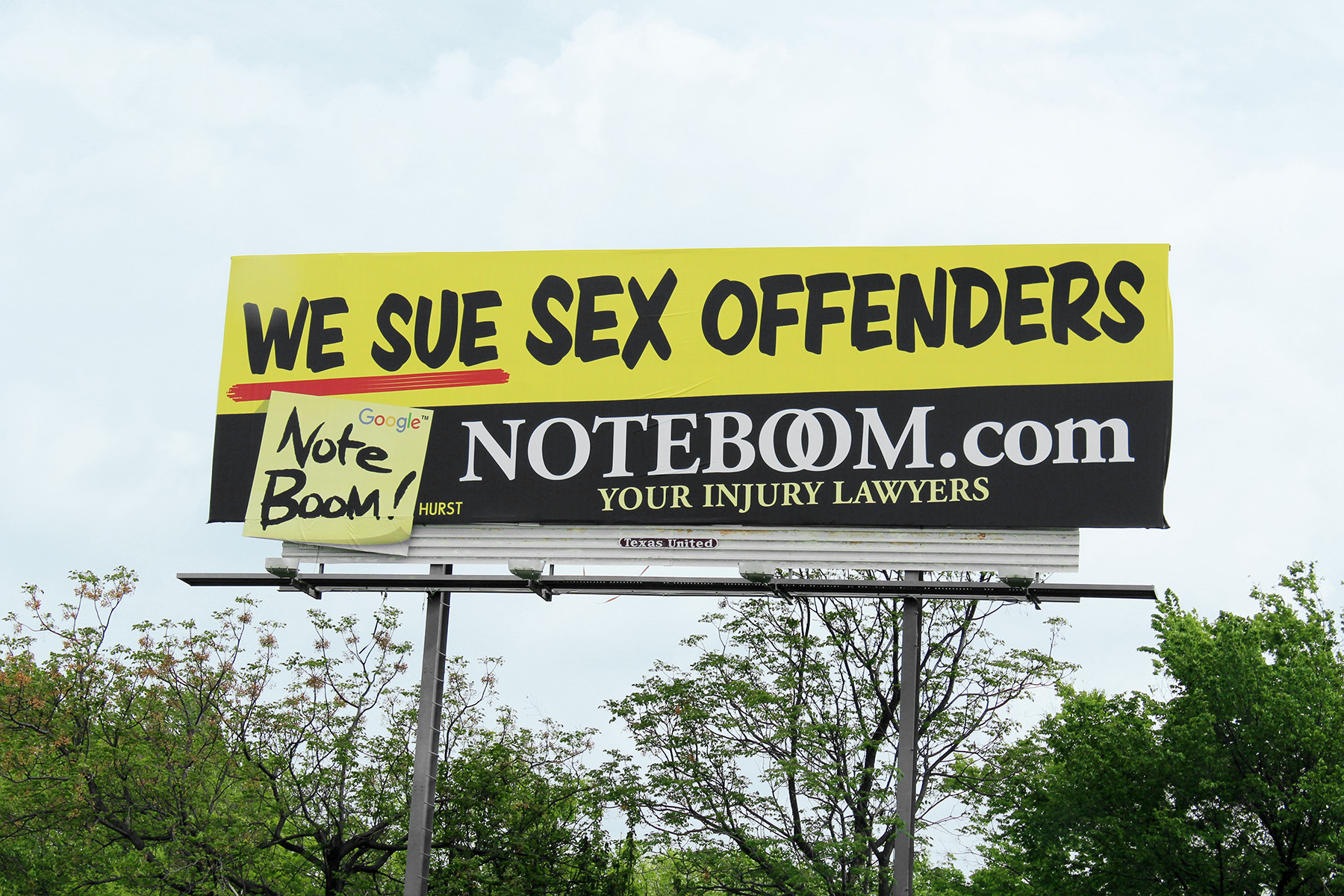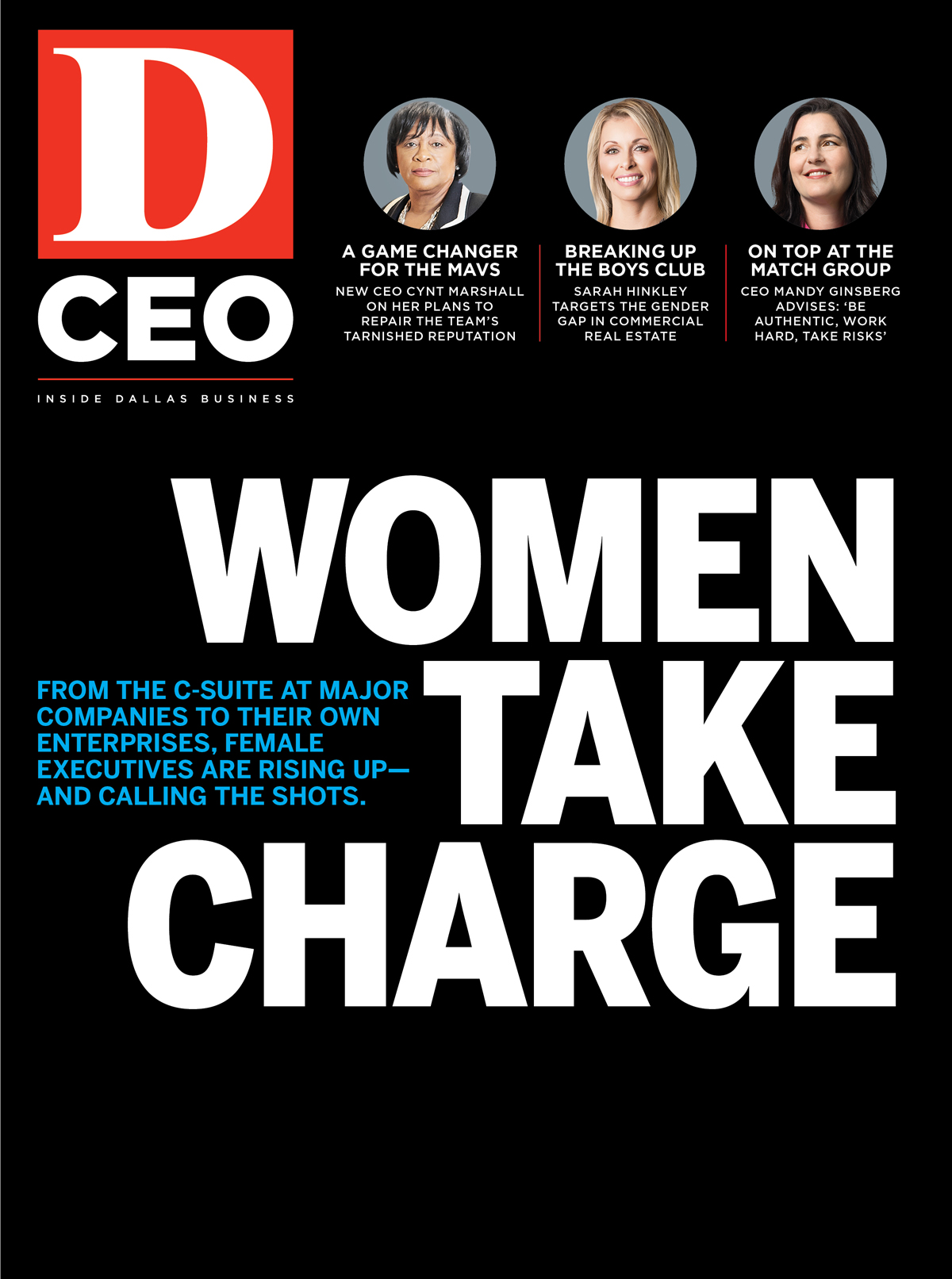Before sexual assault allegations surfaced against Bill Cosby, Bill O’ Reilly, and Harvey Weinstein, before there was a Twitter to spread the wildfire #MeToo movement, there was Chuck Noteboom. For decades, the North Texas attorney has taken on sexual offense cases that few other Texas personal injury lawyers would touch. “It’s a niche Chuck carved out for himself, representing victims of sexual assault and sexual misbehavior,” says Jack Strickland, a former Tarrant County prosecutor and now a veteran Fort Worth defense attorney. “I can’t remember any other lawyer doing anything like this.”
Victims more often than not are girls and women made vulnerable by unequal power dynamics or emotional trauma or misplaced trust. An increasing number are now being taken seriously by authorities, Noteboom says in an interview at his home in the posh Park Hill neighborhood of Fort Worth: “The Weinstein thing has changed a lot of stuff.”
Offenders that Noteboom, 65, has sued compose a sometimes unlikely rogue’s gallery. They include pastors and youth ministers, a drag-race champion, a sanitation supervisor for a bread company, a hotel general manager, and an addiction counselor. Then there are the family members—men long seen as caring grandpas and step-dads.
Sometimes, simply winning isn’t enough for the cherubic, 5-foot-7, 210-pound Noteboom who, Strickland says, can be a “bombastic” force in the courtroom, fiercely advocating for his clients.
“Now, with the #MeToo movement, unwanted kissing and touching is a case.”
Bob Washington, the firm’s go-to investigator
One of them, a 17-year-old victim, had identified Gene “The Snowman” Snow, a celebrity drag racer from Bedford who would plead down to a lesser charge—injury to a child—and receive three years’ probation in 2007 after the youth told police and the Texas Rangers that Snow had abused him since the fifth grade.
Incensed, and despite winning a sizable civil settlement, Noteboom pounced. Going beyond any maneuver taught in law school, he secured a billboard towering over Snow’s one-story office building off Airport Freeway and put up the first of his now-trademark advertisements that trumpet:
“We Sue Sex Offenders.”
“I got pissed,” Noteboom says, explaining his over-the-top action. “Snow didn’t even have to register as a sex offender. I saw this billboard next to his office, so I rented it.” (The champion racer relocated his Haltom City business a few blocks away. But the billboard, along with seven others, still stands. Snow did not respond to D CEO’s request for comment.)
Says a retired judge in Tarrant County: “As an advocate, some might say Chuck Noteboom could be too aggressive. But he is always willing to go to the mat for his client and do what is needed to be done in a professional manner, even if it’s sometimes ‘outside the box.’”
Veracity Not An Issue
While sex-abuse suits account for fewer than a third of his cases, Noteboom says he easily handles more than any other Dallas-Fort Worth firm, excluding those suing the Catholic Church over alleged misconduct by priests.
Most of his firm’s cases are more typical personal injury disputes, ranging from nursing home neglect to truck collisions. But some are out of the ordinary. There were civil actions arising from injuries sustained before Super Bowl XLV when ice fell off Cowboys Stadium, for example. There was the 2001 botulism outbreak traced to spoiled chili that had been rejected by an Oak Cliff cafe, but then was allegedly relabeled and resold by Fort Worth’s oldest food distributor, Ben E. Keith Co. Yet another involved a mid-cities Hooters bar that over-served an already stumbling drunk client who then crashed his pickup, killing a 4-year-old girl.
Noteboom’s eight billboards, which together cost “six figures” annually, help attract all sorts of personal injury clients, Noteboom says. Unlike Jim “The Texas Hammer” Adler, the Houston attorney with ubiquitous TV ads who’s believed to shop some of his cases to other lawyers, Noteboom says he mainly handles cases in-house, and only refers them to others if, say, an employment law specialist is more appropriate.
Often the hardest part is either collectability or the statute of limitations, not the client’s veracity. “I don’t think any woman would go through this demeaning process, this exposure, if she were making it up,” Noteboom says of the sex-offense cases. In a drawn-out deposition, one client had to detail exactly why she had divorced. Collectability often boils down to whether the attacker’s employer was, or should have been, aware of his conduct, and is well-insured, since the assailant himself frequently doesn’t have deep enough pockets.
For generations, it was unseemly for attorneys to publicly advertise their services. That changed after the Supreme Court ruled against the State Bar of Arizona in 1977, asserting that lawyers were entitled to commercial speech under the First Amendment. The ruling’s timing could not have been more opportune for Noteboom.
 He graduated that year from The University of Texas at Austin School of Law, after earning a bachelor’s degree in advertising at the University of Illinois. He also had been a teaching assistant in UT’s communications department, showing undergraduates how to write snappy advertising copy. (Noteboom says the dean fired him after three semesters for “furnishing my office with a shag carpet,” then admits: “I was also disrespectful.”)
He graduated that year from The University of Texas at Austin School of Law, after earning a bachelor’s degree in advertising at the University of Illinois. He also had been a teaching assistant in UT’s communications department, showing undergraduates how to write snappy advertising copy. (Noteboom says the dean fired him after three semesters for “furnishing my office with a shag carpet,” then admits: “I was also disrespectful.”)
A Hurst attorney named Wallace Craig, a board-certified personal injury lawyer who also did divorces, wills, and DWIs, had one reason to bring aboard the inexperienced attorney. “Craig hired me for advertising,” Noteboom says. After one small ad in the Yellow Pages, the phone rang off the hook. “I was seeing new clients every 20 minutes,” he went on. “Wallace swore me to secrecy. When other attorneys asked how they were doing, he’d say, ‘Oh, those ads are expensive!’ But it was the only advertising in town at the time.” Five years later, the firm ran its first television commercial.
With the ad-fueled practice booming, Noteboom asked if his name could be added to the shingle once he was board-certified. He wasn’t asking to be made partner, he stresses. But the young attorney miscalculated. “You can have all the workers’ comp cases,” he was told. “But it’s never going to be Craig & Noteboom.”
Grasping that making partner would always be beyond his reach, Noteboom gave two months’ notice and struck out on his own. His first wife’s earnings as a buyer for Zale’s carried the family financially while Noteboom “earned pocket change.”
“I took anything that walked in the door—custody disputes, consumer cases,” he recalls. He also got cases referred by other attorneys, then split the fees. (Texas is one of six states that allow such referral payments.) “If a paternity case paid $2,000, I’d give $1,000. My business just grew like crazy. At one point, I had up to 41 people with me. Then workers’ comp cases died; the laws changed on medical malpractice.”
“I don’t think any woman would go through this demeaning process, this exposure, if she were making it up.”
Chuck Noteboom
After he became board-certified in 1983, Noteboom only accepted personal injury cases. He had several sexual offender cases under his belt by the time he filed the civil suit against Snow, the celebrity drag racer. In the early 1980s, he’d sued the Catholic Church on behalf of a woman who claimed she was raped by a priest she contacted for marriage counseling. (Immediately afterward, the priest gave her absolution for committing adultery.) Although the diocese assured her the clergyman could no longer perform priestly duties, she later spotted him officiating at a new priest’s ordination in Wichita Falls. She hired Noteboom and sued. Thirty-five years ago, though, such cases were not easy to win.
“But where are the damages?” the judge mused out loud at one point, Noteboom recalls. “That was the attitude in those days,” he says. Nonetheless, he ended up securing a settlement that netted him fees of more than $40,000—a windfall at a time when he was earning $900 a month.
Reared a Catholic, the thought crossed his mind that suing the church “might earn me a special place in hell.” (Such remarks are classic Noteboom. In a 2014 Q-and-A with the Texas Bar Blog, he quipped that the “only” reason he went to law school was to avoid the Vietnam-era army draft with a student deferment.)
In the meantime, his personal injury practice grew, and he transformed a dogged ex-landscaper into the firm’s go-to investigator. The investigator, Bob Washington, feels certain that the #MeToo movement will dramatically alter the situation where a vast majority of victims had been too intimidated to come forward.
“We feel like it’s been going on for centuries, and just now it’s become not OK,” says Washington, 55. “Ten years ago, we may not have taken the case of the dentist touching the breasts of his hygienist—no actual penetration. Now, with the #MeToo movement, unwanted kissing and touching is a case.”
Unlike starlets who have been coerced by the likes of Weinstein and trigger headlines or TMZ coverage, many of the victims represented by Noteboom are struggling women whose families’ welfare could be jeopardized by speaking out.
One such victim worked the overnight shift as a cleaner at the massive Mrs Baird’s bread plant off Interstate 35W in Fort Worth. It became a Playboy Mansion-style playground for her supervisor, a church deacon (and brother-in-law to Arlington’s then-chief of police), according to court filings and news reports. Duane Ford was accused of forcing a member of his sanitation crew, identified only as “B,” to have sex in the building. Ford denied the allegation.
Less than a month later, the Fort Worth Star-Telegram reported Ford was charged with rape when another female subordinate alleged the sanitation supervisor demanded sex as “repayment” for helping her get the entry-level cleaning position. They had met at church, the paper said.
She rebuffed the pressure when she started in March 2006, but eight months later the woman said she was ordered to his office, the paper reported. Locking the door behind her, Ford touched her buttocks and tried to unbutton her blouse, police said. She refused to have sex with him, pleading that he knew she had once been raped. But he forced her down and assaulted her, according to reports.


In reporting the rape charge, the article said that the bread company fired Ford following an internal investigation. The Mrs Baird brand is owned by Bimbo Bakeries USA, a unit of the world’s largest baked goods company, Mexico City-based Grupo Bimbo. The company said it would continue to cooperate with the police probe. But in a civil case pursued by Noteboom, Bimbo denied that it could be held culpable for Ford’s alleged assault against “B,” court documents said.
Ford was no-billed by a Tarrant County grand jury in the criminal rape case; no DNA evidence was found on panties preserved by the victim. But another female employee, identified in court papers as “S,” joined the civil case, leveling similar charges of rape against Ford.
Bimbo settled out of court for an undisclosed amount. If employers strike a deal, it can mean the plaintiffs have dug up proof that HR officials or others in management had received previous complaints about the accused employee. But both sides are constrained from discussing the case by the settlement’s confidentiality terms.
Redress for Victims
There were fewer restraints on a 2011 case involving a Fort Worth hotel manager who allegedly climbed into a patron’s pickup at 2 a.m., tore off her blouse, and sank his teeth into her exposed breast. The assault continued until the woman, a pet-supply sales rep with an 80-pound weight disadvantage, scrunched herself into a corner and repeatedly kicked the 6-foot-4, 215-pound hotelier until he was forced out of the truck’s cab and onto the hotel’s parking lot, she said in a deposition. While it was unlike cases involving bosses and subordinates, former hotel employees were prepared to testify against the manager about workplace harassment and worse.
“My arms are pinned, and he’s ripped my shirt,” the woman, Deborah H., said under questioning by the hotel’s attorney. “He goes to my breast and he bites and he sucks and he licks. And he’s telling me he’s not going to stop. I screamed, ‘No. Stop. Help.’ The only way I got him off was, finally, I just relaxed for a minute. And when I stopped, he looked up, like, why are you not fighting me anymore? And when he did that, I wedged my arm out, and hit him as hard as I could right across his face. … I pushed him, kicked him with everything I had.”
Franklin David “Dave” Michel, 61, who was general manager of the Fort Worth Radisson-Fossil Creek, was arrested and ended up pleading guilty to assault and public lewdness charges, both misdemeanors carrying a $500 fine and 18-months’ probation.
Angered that Michel received no jail time, the victim complained to a police officer who recommended she file a civil case. As a result, Deborah H. ended up suing Michel and his employer, the Santa Ana, California-based TOG Hotel Properties, which also owns the Crowne Plaza Hotel in downtown Dallas.
Brian Butcher, a Noteboom attorney who has worked on most of the firm’s sexual offender cases in recent years and who calls himself “Chuck’s pit bull,” says he and Washington, the investigator, found numerous former employees willing to describe “Animal House” antics at some of TOG’s DFW properties.
There was an effort to market to strippers, and there were suggestive “$69 specials.” One employee said a manager had used a pass key to enter a room she was using, then quickly backed out after finding himself confronting her male friend. Six months before the assault on Deborah H., a hotel bar employee said she ran out of the hotel and straight to the police to allege that a manager had forced her to have oral sex in his office. The man denied the charge, and authorities took no action, Butcher said, because the woman had not said, “No.” The woman later rammed her car into a bridge in a suicide attempt, which Butcher believes was connected to trauma from the assault.
In the parking lot assault case, a confidential settlement was struck with the hotel’s owner late last year for an undisclosed amount. Michel was ordered to pay a default judgment of $500,000. He worked for a time in Maryland, and then was the manager through early 2018 of the DoubleTree hotel in Farmers Branch before leaving Texas, Butcher says. Michel’s LinkedIn profile indicated he’s seeking work in the hospitality industry: “Seasoned general manager looking for new opportunities.”
“We have a default judgment, and we are going to act on that,” says Butcher, sounding not unlike the relentless pursuer Javert in “Les Misérables.” “If he tries to transfer assets to his new wife, we can use a Texas statute to recover them. We think he might have moved to Nevada.”
Others sued by Noteboom over the years include a dentist high on laughing gas who assaulted his office hygienist; a psychiatrist who used shock treatment in an attempt to erase a patient’s memory of being raped by him; a doctor who traded prescriptions for sex with both him and a plastic surgeon friend; and a man who admitted abusing his granddaughter, settled, then took his own life.
“Arguably, Chuck is fulfilling a very legitimate purpose,” Strickland, the former DA, says. “Sexual assault victims have long been ignored by the law. When they gave testimony in the past, it was over for them. Now, it can be different. Chuck is getting them redress.”






